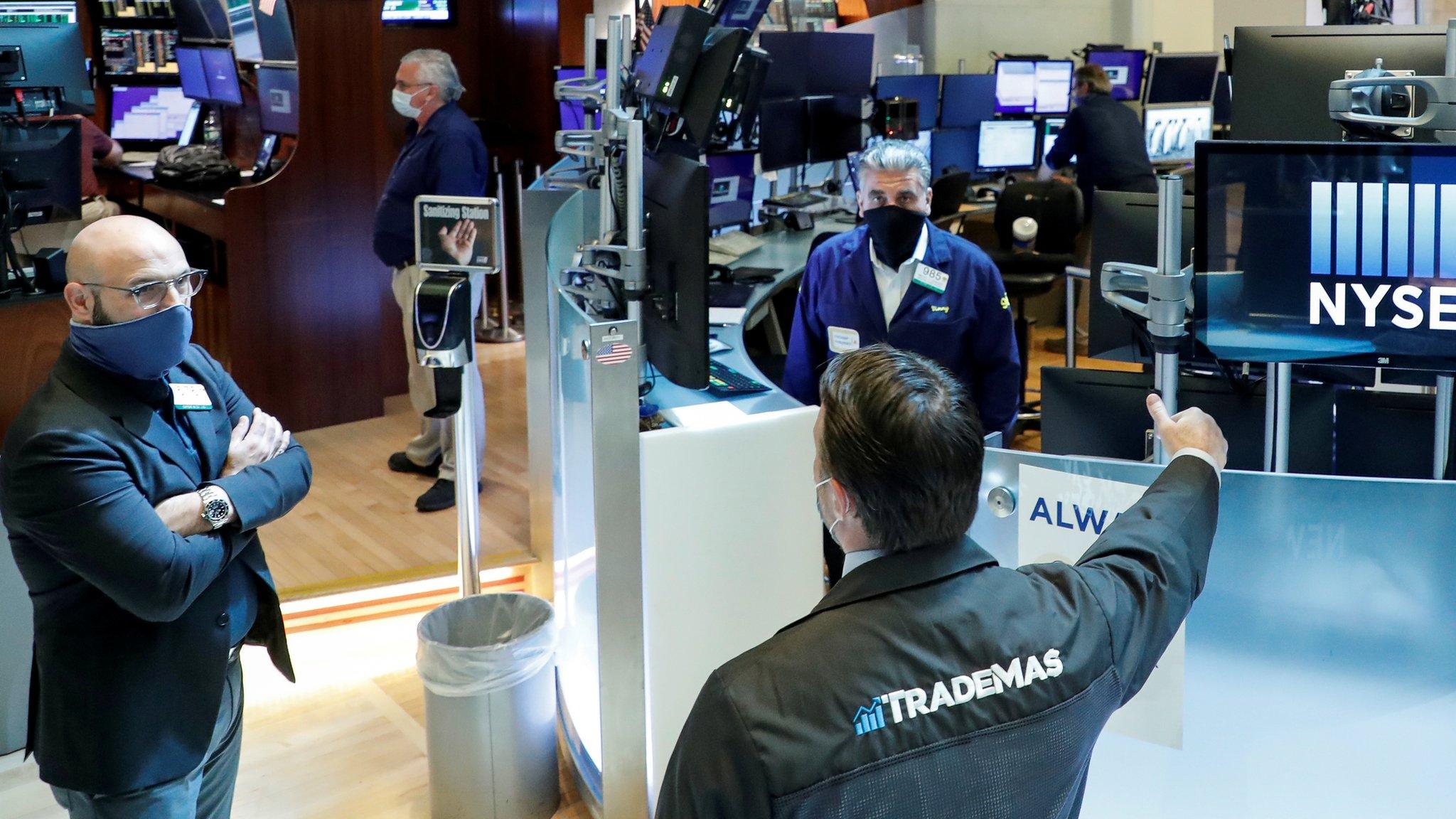Real 'Wolf of Wall Street' offers investor knowhow
- Published

Jordan Belfort was played by Leonardo DiCaprio in the 2013 film
This may sound like the plot of a bad Hollywood movie: A criminal stockbroker shares life lessons with newcomers just entering the business.
It's actually real life.
Jordan Belfort, the man whose rise and fall in the financial world inspired the "The Wolf of Wall Street" film, will offer a video series on the US investing website RagingBull.
The site - which itself has faced criticism over its marketing tactics - is geared toward amateur investors and has gained popularity amid a boom in amateur investing.
"We thought it would be beneficial for the rookies to learn from his experiences to become more successful traders in the long run," chief executive Jeff Bishop said in a press release, external announcing the offerings from the "infamous" former investor.
Who is Jordan Belfort?
Mr Belfort made his fortune as a New York stockbroker in the 1980s and 1990s, working on major deals such as the public listing of the Steve Madden shoe company.
In 1999 he pleaded guilty to fraud after manipulating stock prices and cheating investors of some $200m (£150m). He spent 22 months in prison for his crimes and was barred from the industry.
Mr Belfort has since reinvented himself as a coach, inspirational speaker and author, whose memoir "The Wolf of Wall Street" was turned into a film by Martin Scorsese starring Leonardo DiCaprio.
In the RagingBull announcement, Mr Belfort said investors should "take advantage of my lessons and learn what to avoid and more importantly, how to capitalise on opportunities".
His sessions will offer insights into topics such as "what it takes to be a trader" and "how to learn from your mistakes".
'Learn from your mistakes'
"He will not be giving advice on specific stocks, companies, or investment strategies," the firm said.
RagingBull, which launched in 2011 and describes itself as an "education" company, is not overseen by financial regulators who monitor investment firms.
In addition to free content, which includes Mr Belfort's material, it charges for some of its services, with annual costs of $49 to $2,000. The firm said it has millions of email subscribers and more than 120,000 people have paid for its trading services.
Mr Belfort has previously been a guest on the firm's podcasts. Mr Bishop said the former trader had "expressed that he felt like he had a lot of wisdom to share from his previous life experiences. We found a way to give him that platform, for free for anyone interested in learning from him."
"It's a win for our members to get an inside look into the mind of a man who grew a firm to thousands of traders, was convicted, and then again built his latest ventures," he said.
RagingBull has been hit with dozens of complaints to the Better Business Bureau, a consumer watchdog site, asking for refunds.
There are also some unfavourable reviews of the site on consumer websites such as Trustpilot, with complaints centring around the quality of the advice and the difficulty of unsubscribing from the service.
However, there are also some favourable reviews of some of the services.
RagingBull said it has resolved many of the complaints, which it attributed to not being prepared for a surge in interest as the ranks of amateur traders increased during the shutdowns.
"Covid took us by surprise," Mr Bishop said. "We adjusted to this demand, hired 20 additional staff on the support team, and have since resolved almost all BBB complaints."
He also defended the firm's investment record.
"At RagingBull, we're giving full access to our trades, good and bad. If a member only spends a week with us, they may only see bad trades. Stick with us for some time and measure a trader's success in a year, not in a week or a day," he said.
- Published18 August 2020

- Published26 July 2020

- Published24 January 2020

- Published10 January 2014
